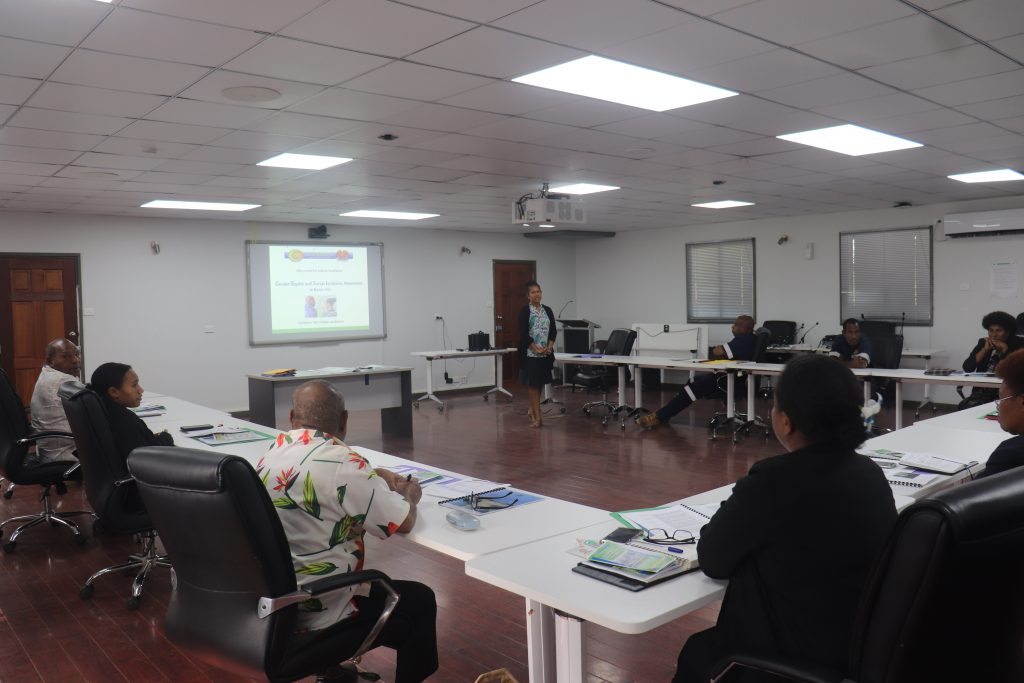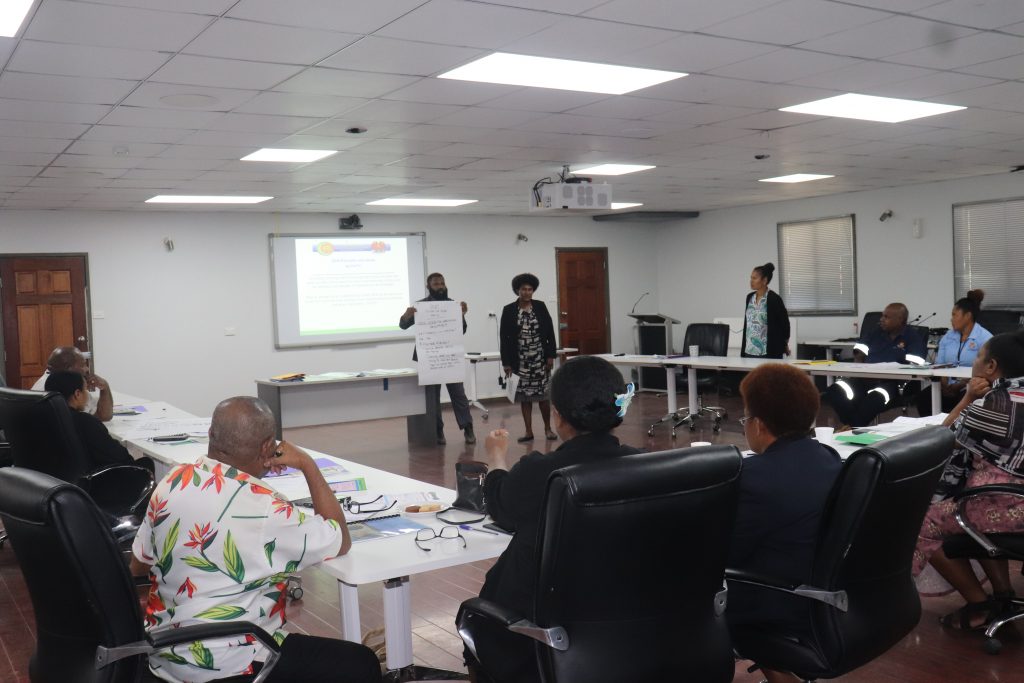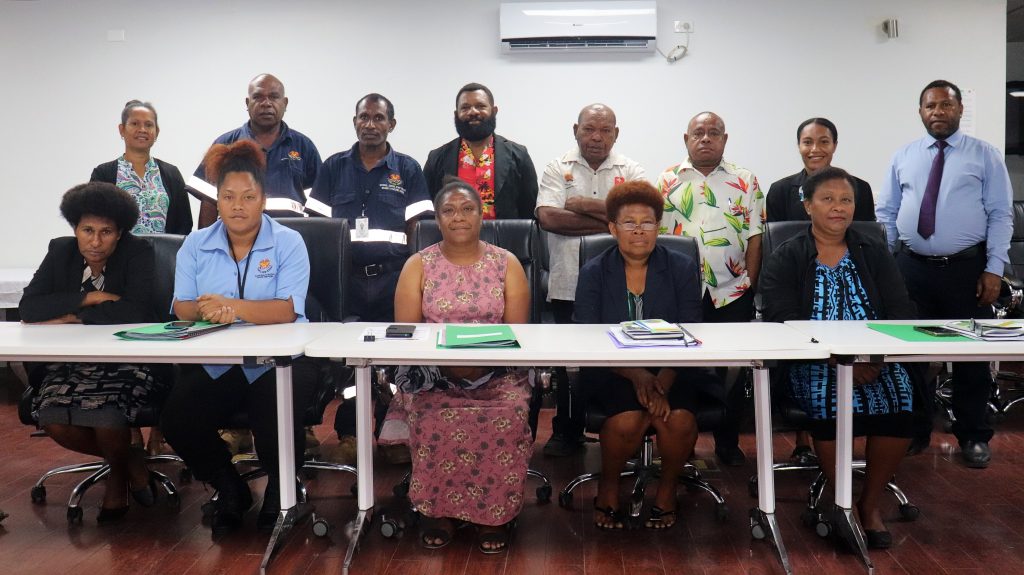The staff of NJSS undergoes Gender and Social Inclusion Awareness
Eleven staff of the National Judicial Staff Services recently underwent a one-day Gender Equity and Social Inclusion (GESI) Awareness with the aim of achieving the objectives and explaining gender equity and social inclusion in the workplace and to discuss actions that the organization can take to mainstream GESI principles and values into its systems and practices.
The staff that attended the awareness included three support staff from the Chief Justice’s chamber, officers from NJSS Finance Division, HR Division and staff from the Buildings and Security Divisions.
Ms Laudiwana during the one-day awareness explained to the participants the meaning of Gender Equity and the involvement in establishing strategies to ensure disadvantaged men and women participated fully in employment and other opportunities.
She also explained the meaning of Social Inclusion during the awareness which meant improving the ability, opportunity, and dignity of people disadvantaged on the basis of their identity.
The Gender Equity and Social Inclusion Policy (NPS) was launched in January 2013 by the PNG Department of Personnel Management (DPM).
It has its foundations in the Public Service Management Act, the Public Service Code of Business Ethics and Conduct, and the General Orders (GO 20)
It was designed to address the issue of discrimination, harassment and domestic violence in the workplace and sets a framework for promotion of gender equity and social inclusive practices across the National Public Service.
The policy applies to all National Government Departments, Provincial, District and Local Level Government Administrations and other agencies.
Currently the NJSS and a number of other LJS agencies are yet to implement GESI into their service delivery.
NJSS is currently working on developing its own GESI policy and in creating a GESI help desk.
The one-day GESI awareness was facilitated by Ms Debbie Laudiwana outlining the topics on:
1. What is Gender Equity and Social Inclusion;
2. Important terms in the Context of Gender Equity and Social Inclusion;
3. GESI principles and values;
4. Factors that influence GESI;
5. Why do we need to talk about GESI;
6. Key priorities; and
7. Mainstreaming GESI into the workplace.
Participants were also given awareness on gender equity and social inclusion in the justice system which is one of the important factors to achieving a fairer justice system outcome.
They were also given activities on what they could do to improve each area in ensuring everyone was treated fairly in the workplace.
Ms Laudiwana said this was the first awareness for 2023 given to the staff of NJSS with another one yet to follow.
“We will be rolling out the GESI awareness to other judiciary staff in other provinces as well, but it all comes down to funding in order for us to carry out the GESI awareness program,” she said.






